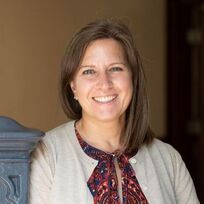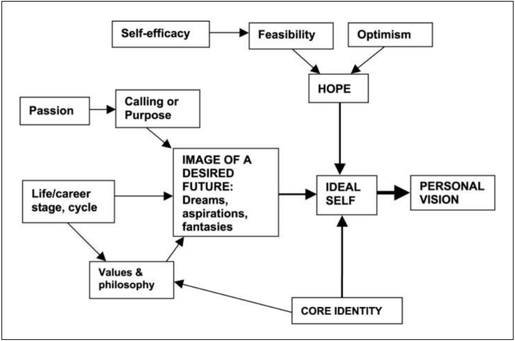Even after 17 years in education and now toggling the past few years between both administrative responsibilities and classroom responsibilities, I still have trouble finding time to pause and reflect on my growth and progress, but it is this very space that offers the reflective judgment needed in order to grow. As campus leaders, I would assert that we have the obligation when faculty seek us out to provide an atmosphere which, in turn, opens the space for change - for our teachers and for us. Understanding that we have the power to create the space for change and to facilitate not only sustained but also desired change requires a foundational level of knowledge about how change works. Richard Boyatzis (2006), one of the leading experts in the field of leadership development and emotional intelligence and co-author of Helping People Change: Coaching with Compassion for Lifelong Learning and Growth (2019), has been working in the field of compassionate coaching for several decades. Drawing on longitudinal research, his work rests on five major discoveries for personal and professional growth:
At first glance, it may seem as if Boyatzis’ principles above have little to do with making one’s institution greater, bigger, more innovative, more [insert your own institutional characteristic here]. That is not the case at all. What Boyatzis is suggesting is this: When we allow space for people to find clarity around who they are, this knowledge, then, informs who they want to be. Their passions, combined with their purpose, values, and life experience, inform the image they create for themselves. In other words, as teacher-leaders and instructional coaches we have the opportunity to gift people the freedom to become who they want to become, not who we want them to become. And institutionally, this opens the pathway for innovation and design. We offer them a piece of our institution so that they may call it their own. So that they may belong. Figure 1. Components of the Ideal Self. Boyatzis and Akrivou, 2006, p. 627. While I don’t have all the answers to how we might effectively do this on our campuses, we might turn to those who are already offering routes into creating and establishing relationships for growth and change. In his book, The Coaching Habit: Say Less, Ask More, and Change the Way You Lead Forever, Michael Bungay Stanier offers one practical application route for faculty belonging through “the seven essential questions” of coaching conversations. Each question builds on the information from the previous one by offering the receiver a pathway to talk about what matters most to them – the actual thing before the thing.
Questions for reflection:
Additional Reading: Boyatzis, R., & Akivrou, K. (2006). The ideal self as the driver of intentional change. Journal of Management Development, 25(7), 624-642. https://doi.org/10.1108/02621710610678454 Boyatzis, R. E., Smith, M., & Van Oosten, E. (2019). Helping people change: Coaching with compassion for lifelong learning and growth. Harvard Business Review Press. Stanier, Michael Bungay. (2016). The Coaching Habit: Say Less, Ask More, and Change the Way You Lead Forever. Box of Crayons Press.
0 Comments
Leave a Reply. |
Don't miss our weekly blog posts by joining our newsletter mailing list below:AuthorsBrad Rathgeber (he/him/his) Archives
July 2024
Categories |



 RSS Feed
RSS Feed